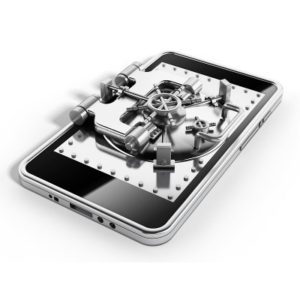With These 3 Features, a Thief May Take Your Phone, But They’ll Never Take Your Data
One of the biggest fears of every smartphone user is having their phone stolen. Compounding this fear is the additional risk of the thief accessing the contents of the device and doing with it as they please. To help reduce  the injury that comes from the insult of a stolen phone, security developers have come up with several clever solutions.
the injury that comes from the insult of a stolen phone, security developers have come up with several clever solutions.
Detection of Wrong Gestures
One promising security technique currently under development by researchers at Ben-Gurion University of the Negev can identify unauthorized users by how they interact with the phone. The idea here is that the way you use your own device is unique to you, meaning that your phone should be able to detect an unauthorized user solely based on them using gestures uncharacteristic of you. Upon making this determination, the phone will effectively lock the user out. In trial runs of this technique, it took the device a mere 13.8 seconds to lock out the unauthorized user.
A list of factors that this security technique takes into consideration are: the frequency, pressure, and speed of touch for the application used, how much electricity is used, and the previous 30 seconds of recent history prior to the phone landing in the wrong hands. Seeing how a new user would be unfamiliar with a stolen phone’s layout and customized interface, researchers estimate that a thief won’t get more than 35 touches in before they’re locked out.
Take a Picture When a Wrong Password is Entered
Another clever security feature is an app that takes a picture with the device’s front-facing camera whenever the wrong lock screen password is entered. This measure is being compared to the other popular use of front-facing cameras known as “selfies,” and is thus given the name “thefties.”
Upon taking a photo of the would-be thief, the picture is then sent to either your cloud storage account or your email, depending on which theftie app you use. Some theftie apps will even go so far as to use the phone’s GPS feature to include a map of where the photo was snapped. Newer versions of the iPhone have this theftie feature built in, and additional theftie apps are available for download from the various app stores.
Remotely Wipe a Stolen Device
Then there’s the nuclear option. If you’re sure that your phone is stolen, and we mean absolutely sure, like, you’re 100 percent confident that it’s not hiding under the front seat of your car, then you can remotely wipe all of your device’s data. This procedure effectively makes the device like new, eliminating all of the data that was on it at the time.
It’s best practice to enable this feature using your mobile device manager. For help with this, OrLANtech can provide you with an enterprise-level mobile device management solution capable of remotely wiping an employee’s stolen phone if it contains sensitive company data. Also, depending on the phone’s service provider, they may be able to remotely wipe the stolen device if you call them and confirm your identity.
As much as having your phone stolen but it can at least be replaced. The data on your phone, however, is much more difficult to replace, or impossible if it’s not backed up to the cloud. Therefore, you’ll want to take all the security measures you can in order to ensure that your device’s personal data will forever be just that, personal.






